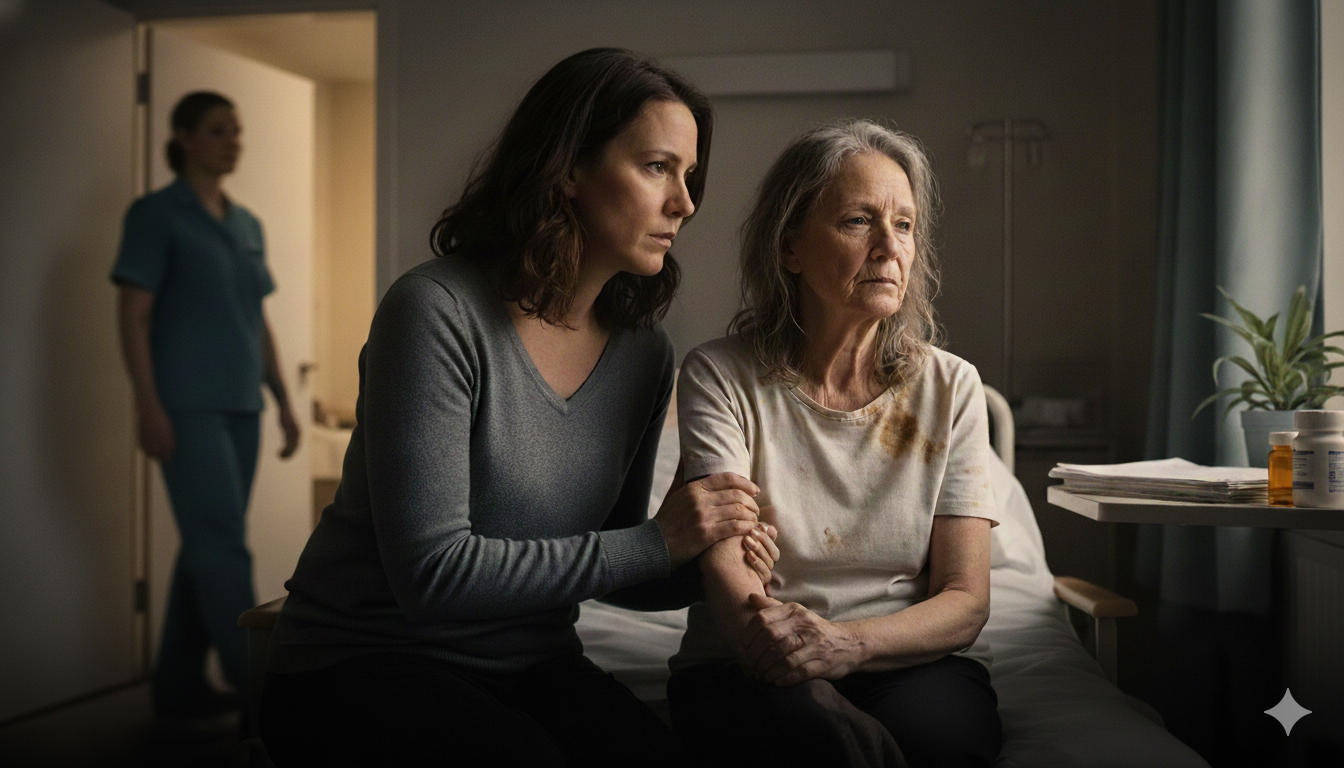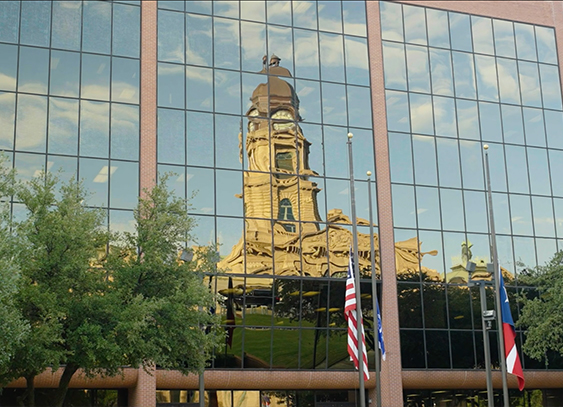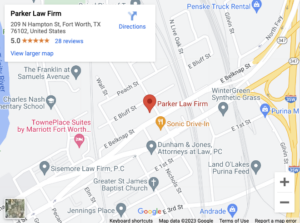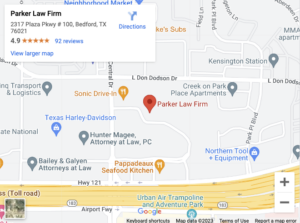Nursing Home Negligence Lawsuit: What You Need to Know

For many families, the first sign of nursing home neglect is a gut feeling that something just isn’t right. Maybe you notice a small change in your loved one, or something about their care doesn’t add up. It’s easy to second-guess yourself or worry you’re being too critical, but your instincts matter. If you think something is wrong, it’s important to pay attention. That concern is often the first step in protecting your loved one.
Choosing a nursing home for a loved one is never easy. You put your trust in the staff and expect them to provide safe, respectful care. When that trust is broken, it can feel overwhelming. Remember, you are your loved one’s best advocate. This guide is here to help you turn your concerns into action and to show you what steps to take if you suspect neglect. You don’t have to handle this alone. We’re here to help you protect your family.
What Is Nursing Home Negligence?
Nursing home negligence happens when a facility and its staff fail to provide the care that residents need and deserve. This isn’t about one-off accidents. It’s about repeated mistakes or ignoring important safety rules, which can lead to serious harm or even death. Negligence can be as simple as missing a dose of medication or as serious as leaving a resident alone when they need help to stay safe.
The “standard of care” means the basic medical and safety steps every nursing home must follow. This covers things like making sure residents get enough food and water, keeping them clean, and preventing falls or infections. If a nursing home doesn’t meet these standards and someone gets hurt, that’s negligence. For example, if a resident gets an infection because staff didn’t keep things clean, or if someone falls because a wet floor wasn’t marked, the facility has failed in its duty.
Common Causes of Nursing Home Negligence
It is a painful but necessary truth that most instances of neglect are not born of deliberate malice. Instead, they are the predictable and tragic outcomes of systemic failures. When we investigate these cases, we often find that the harm done to a single residentMost nursing home neglect doesn’t happen because someone wants to cause harm. Instead, it’s usually the result of bigger problems in how the facility is run. Often, these problems come from putting profits ahead of people, which makes it hard for staff to provide the care residents need.in its promotional brochures, but the daily reality for residents is dictated by the number of qualified staff on the floor. When a facility is understaffed, caregivers are stretched thin, forced to rush through their duties and make impossible choices about which residents’ needs are most urgent. This is how calls for help go unanswered, how residents are left sitting in soiled clothes, and how subtle but critical changes in a resident’s health are missed. It is a business model that treats essential care as a line-item expense to be minimized, with residents paying the ultimate price.
Another common problem is when nursing homes don’t create or follow proper care plans for each resident. Every person should have a plan that covers their medical needs, physical limits, and preferences. If these plans are ignored or not detailed enough, important things like medication schedules or fall prevention can be missed. When care plans are treated as paperwork instead of a real guide, residents can get hurt.
A clear example is when staff don’t regularly turn or reposition residents who can’t move on their own. This basic step prevents bedsores, which are painful and can become very serious. When staff skip this because they’re too busy or there aren’t enough of them, it’s a direct failure to provide proper care.
Recognizing Signs of Neglect in a Nursing Home
The best way to protect your loved one is to stay involved and pay attention. Visit often, watch for any changes, and don’t ignore your concerns. You know your family member better than anyone else. If you see something that doesn’t seem right, write it down and take action. Early signs of neglect are rarely just a one-time thing.
Bedsores (Pressure Ulcers), Dehydration, UTIs, Malnutrition
Bedsores are a major warning sign. With proper care, they can almost always be prevented. If your loved one is in bed or a wheelchair and you find a bedsore, it means staff aren’t doing their job. Bedsores are not just part of getting older—they are a sign of neglect.
Chronic dehydration and recurrent urinary tract infections (UTIs) are also serious indicators of a problem. Elderly residents often have difficulty drinking enough fluids on their own and may not recognize thirst cues. It is the staff’s responsibility to monitor their fluid intake, offer water frequently, and assist them as needed. When a resident is persistently dehydrated, it can lead to confusion, kidney problems, and severe UTIs. A sudden increase in confusion, falls, or lethargy can often be traced back to a UTI caused by poor hygiene and dehydration, both direct results of neglectful care.
Similarly, unexplained weight loss or signs of malnutrition should prompt immediate concern. Residents may need help eating, have specific dietary requirements, or have trouble swallowing. It is the nursing home’s job to ensure they are receiving adequate, nutritious food and the assistance they need to eat it. If your loved one is losing weight, appears frail, or complains of constant hunger, it is a clear signal that their nutritional needs are not being met. These are not small oversights; they are dangerous signs that a facility is failing in its most fundamental duties.
How a Nursing Home Negligence Lawsuit Works
If your efforts to protect your loved one aren’t enough and harm still happens, a lawsuit may be needed to hold the nursing home accountable. The legal process can seem overwhelming, but the goal is simple: show that the nursing home failed to provide proper care and that this caused harm. Building a case means collecting evidence and following the right legal steps.
What Evidence Helps Prove Negligence?
The foundation of a successful lawsuit is evidence, and this is where your role as a vigilant advocate is invaluable. The observations you make and the records you keep can become the cornerstone of your case. What evidence helps prove negligence? It starts with your own documentation. Keep a detailed journal of your visits, noting the dates, times, and what you observed. Take photographs of any injuries, such as bruises or bedsores, as well as any unsafe conditions you observe, such as cluttered hallways or broken equipment. If your loved one is able to communicate, write down their complaints and concerns in their own words.
Beyond your personal records, we will conduct a thorough investigation to gather official documentation. This includes obtaining a complete copy of the resident’s medical records from the nursing home and any outside hospitals or doctors. We will scrutinize the nursing home’s internal records, including the resident’s care plan, daily staff notes, medication logs, and incident reports. We will also investigate the facility’s history of state inspections, violation citations, and staffing records, which can often reveal a pattern of understaffing and systemic failures. In many cases, we bring in medical experts and nursing home administration experts to review this evidence and provide professional opinions on how the facility breached the standard of care.
State-Specific Considerations and Timelines
It is also important to understand that the law sets deadlines for filing a lawsuit. These deadlines, known as the statute of limitations, vary from state to state. This is one of the most critical state-specific considerations and timelines to be aware of. If you wait too long to take action, you could lose your right to seek justice forever. This is why it is so crucial to act swiftly when you suspect neglect. Contacting an experienced attorney as soon as possible ensures that crucial evidence is preserved and that all legal deadlines are met, protecting your family’s right to hold the nursing home accountable.
Choosing the Right Lawyer for a Nursing Home Negligence Case
Selecting legal representation is one of the most important decisions you will make in this process. Not all personal injury attorneys have the specific experience and resources required to successfully take on a nursing home. These cases are complex, emotionally charged, and often fiercely defended by large corporations and their insurance companies. You need more than just a lawyer; you need a dedicated advocate, a compassionate partner, and a tireless fighter who is prepared to go the distance for your family.
When you are choosing the right lawyer for a nursing home negligence case, look for a firm that focuses on this area of law and has a proven track record of holding these facilities accountable. Ask about their approach to these cases. Do they manage a focused caseload, allowing them to give each family the personal attention they deserve? Or will you be just another number in a massive docket? At Brad Parker Law Firm, we believe every family’s story is profoundly personal. Our commitment is to learn each case “backwards, forwards, and from every angle.” This meticulous approach means we dig deep, uncovering the evidence others might miss and building a powerful case designed to secure not just compensation, but meaningful change. We treat you like family, and we fight for you with the same passion and dedication we would for our own.
Damages, Settlements, and the Role of Subrogation & Liens
While no amount of money can ever undo the pain and suffering your loved one has endured, a lawsuit can secure the financial resources necessary for their recovery and future care. It also serves as a powerful deterrent, forcing the facility to confront its failures and improve its practices. The compensation sought in these cases, known as damages, typically covers economic losses like medical bills for treating the injuries, the cost of moving to a new facility, and any future medical needs. It also includes non-economic damages for the physical pain, emotional distress, and loss of dignity the resident suffered.
How Subrogation, Liens, and Insurance Impact Recovery
As a case moves toward a settlement or verdict, it is important to understand how subrogation, liens, and insurance impact recovery. These are complex legal concepts, but the principle is simple. If an insurance company, like Medicare or a private health insurer, has paid for medical bills related to the neglect, they will have a right to be reimbursed from any settlement you receive. This is known as a subrogation claim or a lien. Think of it as the insurer asking to be paid back for the costs they covered on your behalf. An experienced attorney knows how to manage these claims, often negotiating with insurance companies to reduce the lien amount. This ensures that the maximum possible portion of the recovery goes directly to your family to support your loved one’s well-being, which is our ultimate goal. We handle these financial complexities so you can focus on what matters most: your family.
Next Steps: What to Do If You Suspect Neglect
That gut feeling that brought you here is your call to action. You have seen the signs, you understand the causes, and you know that your loved one deserves better. You are now equipped with the advocate’s playbook. The next steps you take are critical for protecting your family member and beginning the journey toward justice. First, continue to document everything. Your notes, photos, and detailed observations are your most powerful immediate tools. Second, if you believe your loved one is in immediate danger, do not hesitate to report the situation to the proper state authorities, such as the Adult Protective Services agency or the state’s nursing home ombudsman program.
Finally, and most importantly, contact an experienced nursing home negligence attorney. You don’t have to face this fight alone. The legal system is complex, and nursing home corporations have teams of lawyers dedicated to minimizing their responsibility. You need a fierce advocate in your corner, someone who understands the law, knows how to fight these giants, and is deeply committed to your family’s cause.
At Brad Parker Law Firm, we are here to listen, to understand, and to guide you. We will help you navigate this difficult time with compassion and strength. We fight tirelessly for you, and there is no fee unless we win. Your initial consultation is free and confidential. Let us be the partner who helps you prove what you already know in your heart to be true. Call us today, and let’s begin the fight for the justice and dignity your loved one deserves.


